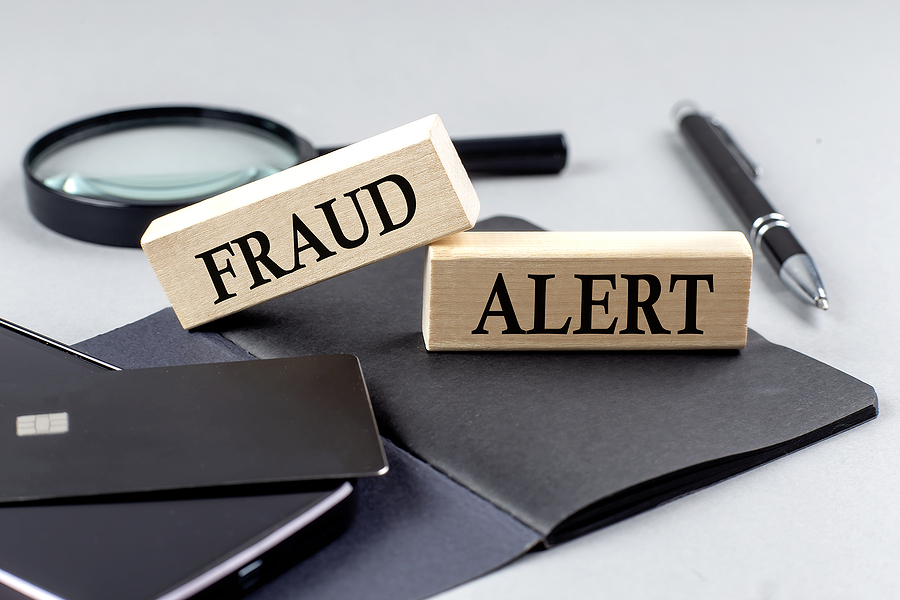FinCEN-Related Fraud Heats Up: How to Avoid Getting Burned
Apr 11, 2025

The U.S. Department of the Treasury’s Financial Crimes Enforcement Network (FinCEN) recently identified an increase in fraudsters using the bureau’s name, insignia and powers to target the public in widespread schemes. FinCEN is tasked with safeguarding the U.S. financial system from illicit activity, combating money laundering and terrorism funding, and providing financial intelligence to promote national security. Here’s a rundown of the latest schemes and tips to help you avoid them.
MSB Fraud
According to a December 2024 FinCEN alert, scammers are registering as money services businesses (MSBs) with FinCEN and using that registration to appear legitimate. Registered businesses may claim that FinCEN vets, approves or licenses them, but the bureau doesn’t confer any such approvals. Scammers sometimes engage in virtual asset investment scams, instructing victims to buy virtual currency and send the funds to fraudulent MSBs. They might also direct potential victims to FinCEN’s MSB Registrant Search Page to gain credibility with potential investors.
Potential red flags for MSB schemes include:
- A company that’s registered as an MSB with FinCEN but isn’t licensed by any state financial regulatory authority where it claims to operate,
- A registered MSB that shares a street address with other recently registered MSBs, and
- A company with a limited online or social media presence that prominently highlights its registration or claims to be licensed by FinCEN, alongside unverified testimonials and promotions of risk-free high-return investments.
Impersonation Scams
Criminals use FinCEN’s name and insignia to impersonate the bureau and its employees in government imposter scams. Typically, they contact people through “spoofed” phone calls, text messages, emails or U.S. mail. Spoofing occurs when a perpetrator disguises an email address, sender name, phone number or URL to convince victims that they’re dealing with a trusted source.
A FinCEN imposter may already know a victim’s name, Social Security number and account numbers from information available on the “dark web” from data breaches. Scammers might demand payments for outstanding debts or anti-money laundering and countering the financing of terrorism (AML/CFT) financing violations. They may also provide fake documentation from FinCEN officials and threaten the arrest or seizure of victims’ accounts. Alternatively, scammers might claim that victims are entitled to financial grants. However, to receive the funds, the victim must first provide bank account information and pay a fee to the imposter to release the funds.
Potential red flags for these schemes include:
- Receipt of a phone call, text, email or mail from FinCEN demanding immediate payment,
- Receipt of a letter from the FinCEN director, deputy director, or other FinCEN or Treasury Department official requesting immediate payment, and
- Notifications about AML/CFT violations, outstanding debts or a Treasury grant.
BOI Reporting Schemes
To be clear, U.S. companies and U.S. citizens are currently exempt from FinCEN’s beneficial ownership information (BOI) reporting requirements. But that hasn’t stopped fraudsters from claiming that the reporting requirements remain in effect and using scare tactics to steal money or personal information from unwary victims. (See “The Ongoing BOI Reporting Saga Is Now Over for Domestic Companies” above.) However, foreign entities may still be required to file BOI reports with FinCEN.
Ongoing confusion and uncertainty about the rules have created opportunities for fraudsters. For example, some scammers charge victims to prepare reports but never actually send them to FinCEN. They may also falsely claim FinCEN charges a filing fee. In addition to claiming to be legitimate third-party filing companies, scammers may use names similar to “FinCEN” or purport to be another government agency and send victims fake reporting forms.
Potential red flags for these schemes include:
- Third-party filing services with little or no online presence,
- Third-party filers with names similar to legitimate companies or government agencies, and
- Claims that failure to file or make a payment to FinCEN will lead to fines, penalties or legal action.
An Ounce of Prevention
The first step to avoid becoming a victim of these schemes is understanding how FinCEN operates. Notably, the bureau never:
- Contacts the general public to request payment or provide specific information (other than general information about BOI reporting) by phone, text, email or mail,
- Sends direct invitations to connect on social media,
- Demands immediate payment or asks people to move their money to a safe location,
- Freezes assets or blocks transfers,
- Requests payments to release funds or prove that you’re not involved in criminal activity,
- Charges for filing reports directly with FinCEN,
- Offers grants or collects debts, or
- Approves or endorses any business registered as an MSB.
If you’re unsure about an email, phone, social media or mail communication claiming to be from FinCEN, use the contact information listed on the bureau’s website to verify its legitimacy.
Report Suspicious Behavior
If you receive questionable solicitations incorporating FinCEN’s name, immediately contact the Treasury Department’s Office of Inspector General and the Federal Trade Commission. Victims of cyber-enabled impersonation scams should file a complaint with the FBI’s Internet Crime Complaint Center and their nearest FBI field office. Your financial advisors can also advise you on more ways to safeguard you, your family and your assets from FinCEN and other fraud scams.
The Ongoing BOI Reporting Saga Is Now Over for Domestic Companies
It’s been difficult to keep up with Financial Crimes Enforcement Network’s (FinCEN’s) evolving beneficial ownership information (BOI) reporting requirements. Amid multiple court challenges, the reporting deadline has been extended, suspended, reinstated and finally revised to exclude all entities created in the United States — including those previously known as “domestic reporting companies” — and their beneficial owners. Under an interim final rule issued on March 21, 2025, FinCEN changed the definition of “reporting company” to include only entities formed in a foreign country and registered to do business in a U.S. state or tribal jurisdiction.
Foreign entities that meet the new definition of a “reporting company” and don’t qualify for an exemption from the reporting requirements must report their BOI to FinCEN. However, they won’t be required to report any U.S. persons as beneficial owners, and U.S. persons won’t be required to report BOI related to any reporting entities for which they’re beneficial owners.
Schedule an appointment to learn how we can support you
© Copyright 2025. All rights reserved.
Sign Up for Email Updates
Accounting & Financial News

3 Critical Questions to Ask When Acquiring Construction Equipment
Acquiring equipment is a major strategic decision for small to midsize construction businesses. It affects everything from…

Traveling for Business with Your Spouse
If you're a business owner, you may have upcoming business trips on your agenda. The idea of…




